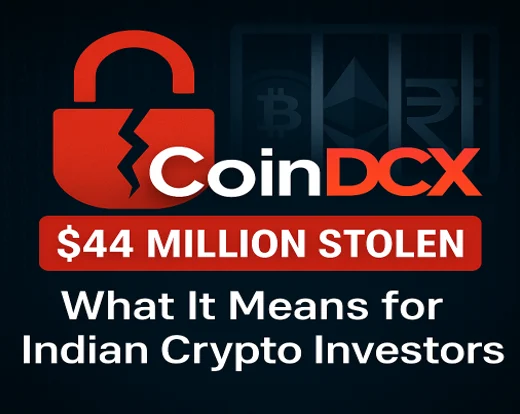
Top 5 Software Crypto Wallets for Beginners in 2025
The cryptocurrency world can seem daunting for beginners, but one of the first and most crucial steps is finding the right crypto wallet to store your digital assets safely. Software wallets offer a great balance between security and convenience, making them an ideal choice for newcomers.
Disclaimer: The information provided in this blog is for educational purposes only and should not be considered financial or investment advice. Always do your own research before using any crypto wallet or making any financial decisions.
However, before diving into the list of wallets, it’s important to understand why self-custody wallets are essential and what the basic requirements are for using one effectively.
Why Use a Self-Custody Wallet?
A self-custody wallet, often referred to as a non-custodial wallet, gives you full control over your cryptocurrency. Unlike custodial wallets, where a third party like an exchange holds your private keys, self-custody wallets ensure that only you have access to your funds. This means you’re solely responsible for your assets, making it a more secure option if managed properly. Here’s why self-custody wallets are important:
1. Full Ownership: With a self-custody wallet, you own your private keys and, therefore, your crypto assets. This eliminates the risk of losing funds due to an exchange hack or bankruptcy.
2. Privacy and Security: Self-custody wallets don’t require personal information, allowing you to maintain your privacy. Additionally, as no third party has access to your funds, you’re protected from potential insider threats.
3. Access to DeFi and dApps: Self-custody wallets allow you to interact directly with decentralized applications (dApps) and decentralized finance (DeFi) protocols, opening up a wide range of opportunities in the crypto space.
Basic Requirements for Using a Self-Custody Wallet
Starting with a self-custody wallet is relatively straightforward, but it does require some basic preparation:
1. Secure Backup of Recovery Phrase: When you set up a self-custody wallet, you’ll receive a recovery phrase (or seed phrase). This is the only way to recover your wallet if you lose access to your device. Write it down and store it in a safe place—preferably offline.
2. Understanding Private Keys: Private keys are your digital signature for transactions. Never share your private keys or recovery phrase with anyone.
3. Device Security: Ensure that the device you use for your wallet (phone, computer, or tablet) is free from malware. Regularly update your device’s operating system and wallet application.
4. Patience and Learning: Familiarize yourself with wallet functionalities, including sending, receiving, and backing up your wallet. Most wallets offer guides and tutorials to help beginners.
By meeting these requirements and understanding the importance of self-custody, you can confidently begin your crypto journey. With that foundation in place, let’s explore the top five software crypto wallets for beginners in 2025:
1. MetaMask
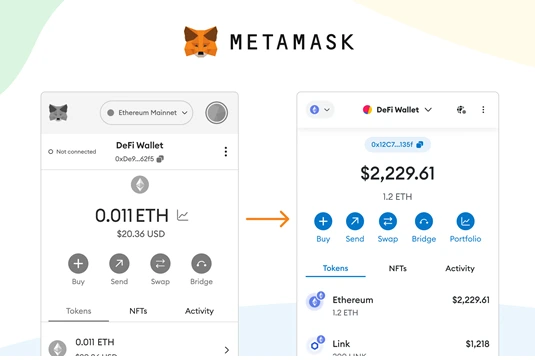
MetaMask continues to be a leading choice for beginners due to its ease of use and integration with the Ethereum blockchain and other EVM-compatible networks. It’s available as a browser extension and mobile app, providing users with a seamless way to interact with decentralized applications (dApps) and manage their crypto.
Features:
– User-friendly interface for storing, sending, and receiving Ethereum-based tokens.
– Multi-chain support for networks like Binance Smart Chain, Polygon, and Avalanche.
– Built-in token swaps and NFT support.
Why it’s great for beginners: MetaMask’s simplicity, combined with its vast educational resources and active community, makes it a top choice for first-time users.
MetaMask also prioritizes transparency and security. As an open-source wallet, it allows the community to inspect its code for vulnerabilities. Moreover, its compatibility with hardware wallets like Ledger adds an extra layer of protection for users who want to enhance their security over time. Beginners often appreciate the guided setup process and its emphasis on safeguarding seed phrases, ensuring a secure start in their crypto journey.
2. Trust Wallet
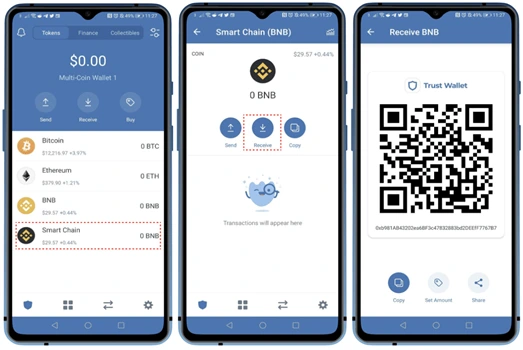
Owned by Binance, Trust Wallet is a multi-currency wallet designed for accessibility and security. It’s perfect for beginners who want to diversify their crypto holdings across various blockchains.
Features:
– Supports over 60 blockchains and 4.5 million digital assets, including NFTs.
– Staking options for earning passive income.
– Integrated dApp browser for accessing decentralized finance (DeFi) protocols.
Why it’s great for beginners: Trust Wallet’s intuitive design, combined with its support for a wide range of tokens, makes it a hassle-free option for new users exploring the crypto ecosystem.
Trust Wallet goes beyond just storage. Its staking features enable users to earn rewards on assets like BNB, Cardano, and Solana, making it an excellent choice for beginners interested in passive income. Additionally, its in-app crypto purchasing feature simplifies the process of acquiring assets directly within the wallet, eliminating the need for third-party platforms.
3. Exodus
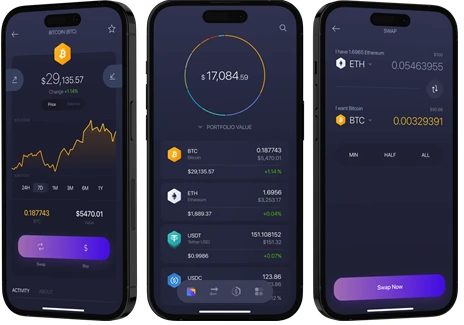
Exodus is a visually appealing wallet that prioritizes user experience. It’s available on desktop and mobile, with an intuitive interface that’s ideal for beginners.
Features:
– Supports over 200 cryptocurrencies.
– Integrated exchange for easy crypto swapping.
– Desktop version syncs seamlessly with the mobile app.
– Hardware wallet compatibility with Trezor for enhanced security.
Why it’s great for beginners: Exodus provides detailed, beginner-friendly tutorials and 24/7 customer support, ensuring that users feel confident navigating the wallet.
What sets Exodus apart is its emphasis on design and usability. The wallet features real-time portfolio tracking, allowing users to monitor their crypto assets’ value fluctuations effortlessly. It also supports integrations with third-party apps, providing additional functionalities such as staking and DeFi access. Beginners often praise its responsive support team and extensive knowledge base, which make troubleshooting a breeze.
4. Coinbase Wallet
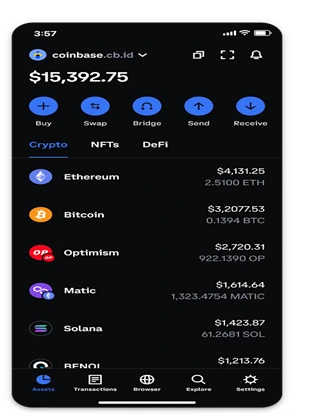
Coinbase Wallet is a non-custodial wallet developed by Coinbase, one of the most trusted names in crypto. It’s an excellent option for beginners who want to dip their toes into crypto without feeling overwhelmed.
Features:
– Supports multiple cryptocurrencies and NFTs.
– Easy integration with the Coinbase exchange.
– Secure storage with biometric authentication and recovery options.
Why it’s great for beginners: The wallet’s direct connection to Coinbase’s exchange simplifies the process of buying, storing, and managing crypto, making it an excellent starting point for newbies.
Coinbase Wallet also excels in its seamless dApp integration, enabling beginners to explore decentralized finance, NFT marketplaces, and blockchain games. The wallet’s ability to operate independently from the Coinbase exchange also means users retain full control of their private keys. Its straightforward backup options and detailed onboarding guides make it a beginner-friendly option.
5. Atomic Wallet
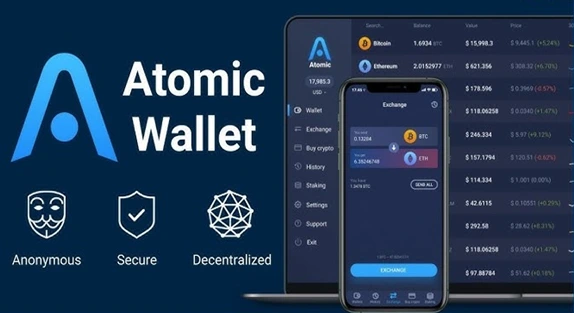
Atomic Wallet is a decentralized wallet that emphasizes privacy and user control. It’s a solid choice for beginners looking to store a variety of assets securely.
Features:
– Supports over 500 cryptocurrencies.
– Atomic swaps for peer-to-peer trading.
– Built-in purchase option for buying crypto with a credit card.
– 24/7 customer support.
Why it’s great for beginners: Atomic Wallet’s straightforward setup and privacy-focused approach make it a dependable option for first-time crypto users.
Atomic Wallet’s support for a vast array of cryptocurrencies ensures that beginners can easily manage diverse portfolios. Its native staking features for assets like Cardano, Polkadot, and Cosmos make it a practical option for those exploring passive income opportunities. Furthermore, the wallet’s robust encryption and decentralized nature empower users to maintain complete control over their private keys, a critical aspect for crypto enthusiasts.
Final Thoughts
Choosing the right crypto wallet as a beginner is crucial for safeguarding your digital assets and ensuring a smooth entry into the world of cryptocurrency. Each of these wallets offers unique features tailored to meet the needs of new users. Whether you prioritize simplicity, multi-currency support, or integration with dApps, there’s a wallet on this list for you.
Take the time to explore these options, and remember—always back up your wallet’s recovery phrase and follow security best practices to keep your funds safe.
In 2025, the world of crypto continues to grow and evolve, and having the right tools to manage your assets will be more important than ever. Whether you choose MetaMask for its dApp capabilities, Trust Wallet for its diverse asset support, Exodus for its ease of use, Coinbase Wallet for its seamless exchange integration, or Atomic Wallet for its privacy-focused approach, you’re starting on the right path to crypto success. Take the leap and enjoy your journey into this fascinating digital frontier!

